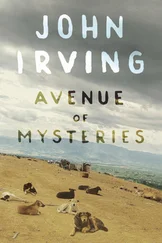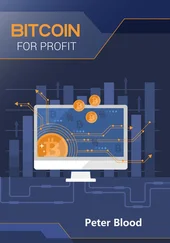He asked numbly: “Did you recognize him?”
“Sure did,” she said. “He looked just like I had pictured him.” Eleven years on, Wilbert’s saddle-like face was still gypsyish, except that the oil-paint teardrop had made way for a highly flammable sneer, untrustworthy and mistrustful at the same time. His hair was still jet-black, almost blue, but longer and greasier.
According to Joni, 1989 was the craziest year of her life, but Aaron was only half listening. He was stunned by the news itself. So the IJmuiden Basher had lived here. For four years Joni had not uttered a word about it, not Sigerius, nobody. Sigerius must have assumed he knew — a perfectly normal assumption, because how could he not know something like this after four years together with Joni. Aaron was so dumbfounded that he forgot to get angry, too preoccupied with the insane idea that Wilbert Sigerius had stretched out in his gym socks on the old-rose three-seater downstairs, had filed out the cylinders of his Honda on the terrace in the garden, had rinsed off his greasy mitts in the same shower he was expected to use the next morning.
“So where’d he sleep?” An idiotic, all-important question.
“Next door,” said Joni, “in my father’s study. The day he arrived the two of them dragged out the desk, and brought in this bed. He slept in this bed.”
“No way.”
She sighed. “The first few weeks were the worst. The guy was just suddenly there . At breakfast, in the bathtub, his big fingers all over the remote control in the evening. At the beginning I used to burn candles in the hope that he’d just go away.”
“Candles?” He was angry, but curious.
“Here,” she said, “on the windowsill. Tea lights. Sat here praying he’d bundle up all his junk back onto his motorbike. A real bigmouth, all of a sudden. He was shy for precisely ten minutes. If they asked me at school who he was, I lied, said Wilbert was an exchange student from Hungary.”
He heaved a deep sigh. “Why does nobody ever tell me anything? What was it like?”
“At first everybody did their absolute best,” she continued. “Dad, Mom, Janis, me — even him. He showed up with the weirdest presents. We’re out in the garden, for instance, and my mother mentions in passing that her hairdryer conked out that morning, and the next day he gives her a brand-new one. Out of gratitude.”
“Stolen?”
“Not even. Wilbert had money coming out of his ears, he bought the most expensive hairdryer. My parents didn’t know how to react. So there’s my mother on an ordinary Tuesday evening, unpacking this gift-wrapped hairdryer. Gosh, um, why thank you, Wilbert. My father was suspicious, he went to the V&D and to the Blokker and to Scheer & Foppen, until he got to the Kijkshop and they told him that yes, a young fellow with a motorcycle helmet and a West Coast accent had bought the hairdryer. You see? he’d say. The first few months my father was the driving force. Still so optimistic. He was going to get Wilbert back on the rails.”
“Big mistake.”
“You know how it turned out,” she said. “We were clueless. For instance, I wasn’t even aware that he’d already done time. More and more, he and Dad would go at it. God, could those two clash, unbelievable. And then it wasn’t even about the real shit, I mean: the incidents, the fights downtown, the break-ins, the cocaine. No, it was, like, normal day-to-day stuff. Forever arguing about everything and nothing. Those endless arguments about his musical taste, when I think back on it …” The drone of an ambulance siren wafted in from outside.
When she carried on with her story, she sounded more upbeat. “Wilbert liked rap and hip hop. Public Enemy, especially. I actually found it kind of interesting. Chuck D, Flavor Flav, Terminator X, I know all those names by heart. Yo! Bum Rush the Show, It Takes a Nation of Millions to Hold Us Back , blaring the whole day long from four huge speakers he’d managed, within no time, to pick up somewhere. Turn it down! I can still hear my father screaming. The anger and desperation in that shouting from the bottom of the stairs. When I biked home from school via the campus, I’d ride up the Langenkampweg and even before our house appeared between the trees you could already hear the pounding. ‘Louder than a Bomb.’ All from that little cubbyhole next door.”
“I also used to get into rows about music. That’s normal.”
“Believe me,” she said, “it was not normal. They were at each other’s throats over the most trivial things. Over nothing, over … over cola . We were never allowed cola at home. Wilbert shows up, turns out he’s hooked on cola. All his life Wilbert is used to drinking two liters of cola a day, not just any old cola, but Coca -Cola. Any other brand he pours down the drain, except Pepsi: Pepsi he flushes down the toilet, I saw him do it. Come Sunday evening, if there was no bottle of Coke in the fridge, he’d ride off in a sweat to the nearest snack bar.”
“Perfect,” said Aaron. “Cola kills you. Eventually.”
She pretended not to hear him. “So, OK, fine, Janis and I can have cola too. One day we’re sitting at the table talking about my sister’s fillings. Janis had just come back from the dentist, eleven years old and two cavities. So we’re discussing brushing, sweets, and so on, the usual routine. Wilbert says: ‘I’ve got zero cavities.’ Gosh, Wilbert, says my mother, that’s terrific. ‘Zero cavities,’ he says, ‘therefore , cola is good for your teeth.’ A normal person gets a laugh out of that kind of claptrap, is amused by that ‘therefore,’ or maybe not amused, but anyhow doesn’t take it seriously. Siem, he takes it dead serious. Reacts way over the top. For months he’s been convinced Wilbert has the same toxic effect on his daughters as two liters of cola a day has on your teeth. He goes ballistic over that ‘therefore.’ A normal kid backs off, says: ‘Just kidding, take it easy,’ but Wilbert is not a normal kid, Wilbert is itching for a fight, constantly. He’s adamant about it, keeps insisting that cola is good for your teeth. That he has scientifically proven that cola is good for your teeth.”
“Was he serious?”
“He was needling him. And you know Siem, he’s reasonable, he’s intelligent, but humor: nada . You know what a short fuse he’s got. He goes berserk. But Wilbert doesn’t budge an inch, he says: vodka, now that’s bad for you, just look at my mother, but not cola, oh no, cola’s got fluoride in it, and he taps his teeth with his knife, tick, tick, tick. That’s how it went, about the most trivial things. And my father just kept taking the bait.”
She gave Sigerius less than his due, he thought. Maybe in her anger she forgot how alien to her father’s nature Wilbert’s fooling must have been. Cola good for your teeth, for fuck’s sake. Once, Aaron was talking to a doctoral student, a hefty Korean who was allowed to study Sigerius’s writings, where one could follow the bumpy road of his argumentation. “So krool,” the fellow said a couple of times, before Aaron realized he was saying so cruel , referring to how mercilessly Sigerius threw his own work overboard as soon as his theories could be disproved. Months of work, sometimes years.
“I only heard later that there was a lot more to it, more than they told me and Janis about.” She sniffed and rolled onto her back. “They fought like cats and dogs about Coca-Cola, but in the meantime there were hassles about cocaine, about dentist bills for having knocked out somebody’s teeth. There was some flap about a job my father had wangled for him at the university’s Technical Services. He’d pinched two grinding machines and sold them.”
Читать дальше












